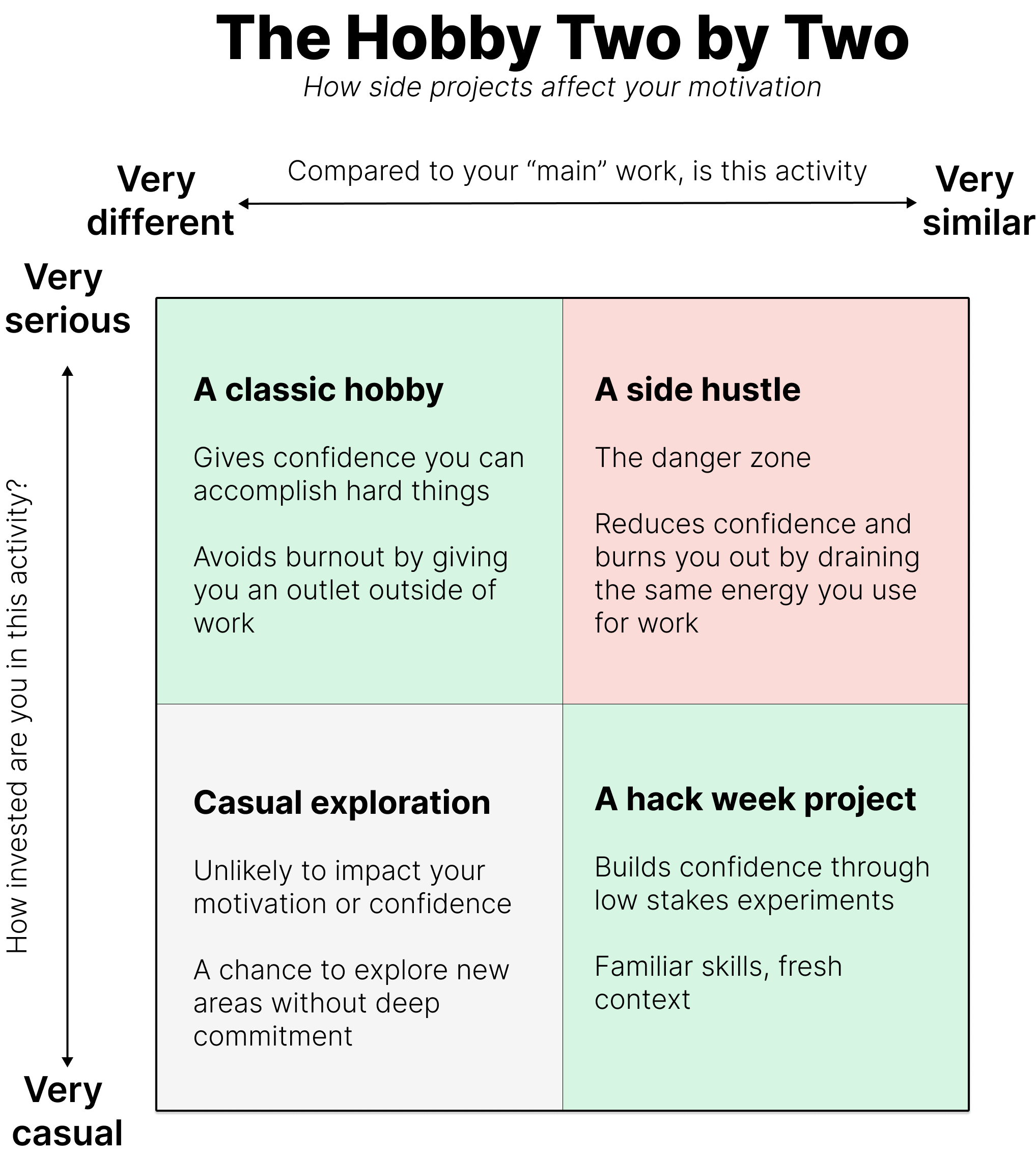The hobby selection 2x2

When I read Range in 2019, one of the things that stood out to me was the role that hobbies have in the lives of high performers. As an example, Nobel Prize winners are 12x as likely to have a creative hobby than their scientific counterparts.
This really stuck with me. I became much more willing to engage in work outside of work. Side projects, hobbies, explorations: I welcomed all of these in my life, sometimes even when I didn’t feel like I had time for them.
On the whole, I’d say this has been a positive thing. Most of them haven’t gone anywhere, but some of them have, bringing people and opportunities into my life that I wouldn’t have had if I hadn’t stretched to take them on. Moreover, some of them seemed to provide their own energy, and even a balancing effect to my life. But this wasn’t consistent. Other times, I felt exhausted or burdened by them, beyond the normal speed bumps that come with typical work.
What was the difference? I didn’t really know.
Then earlier this year, David Epstein (the author of Range) posted about this paper in the Journal of Vocational behavior that explained it for me. The authors compared the impact of hobbies on self efficacy, your belief in your ability to do things, and found a consistent pattern when analyzing the seriousness and intensity of the hobbies.
Put simply, if a hobby is very serious and very similar to your core work, it’s going draw you down. This should make intuitive sense: it’s drawing on the same energy you need for your day job.
But this isn’t the end of the story. The authors found that serious hobbies that are different than from your core work don’t have this impact. Having something you pursue seriously that is outside your focus can increase your self efficacy. Speaking personally, I find that hobbies like this help me take setbacks in my day job in stride by reminding me that it’s just one part of who I am and give me an outlet for my creativity when it’s stifled at work.
If you are going to do something in an area that’s close to your focus area, then it needs to be more casual. This is what makes hack week projects so fun: the chance to explore a familiar domain with fresh eyes and fewer constraints. The playfulness of it is the point.
Overtime, I’ve come to visualize this as a 2x2. I’m keeping it as a reminder for when I select my next project: what role do I want this to play in my life? Is it meant to build mastery? Offer escape? Recharge me? Stretch me?
If it’s not my main focus, I want to be intentional about how it fits. Does it complement my work or quietly compete with it? Does it give me energy, or siphon it off?
2025-05-15